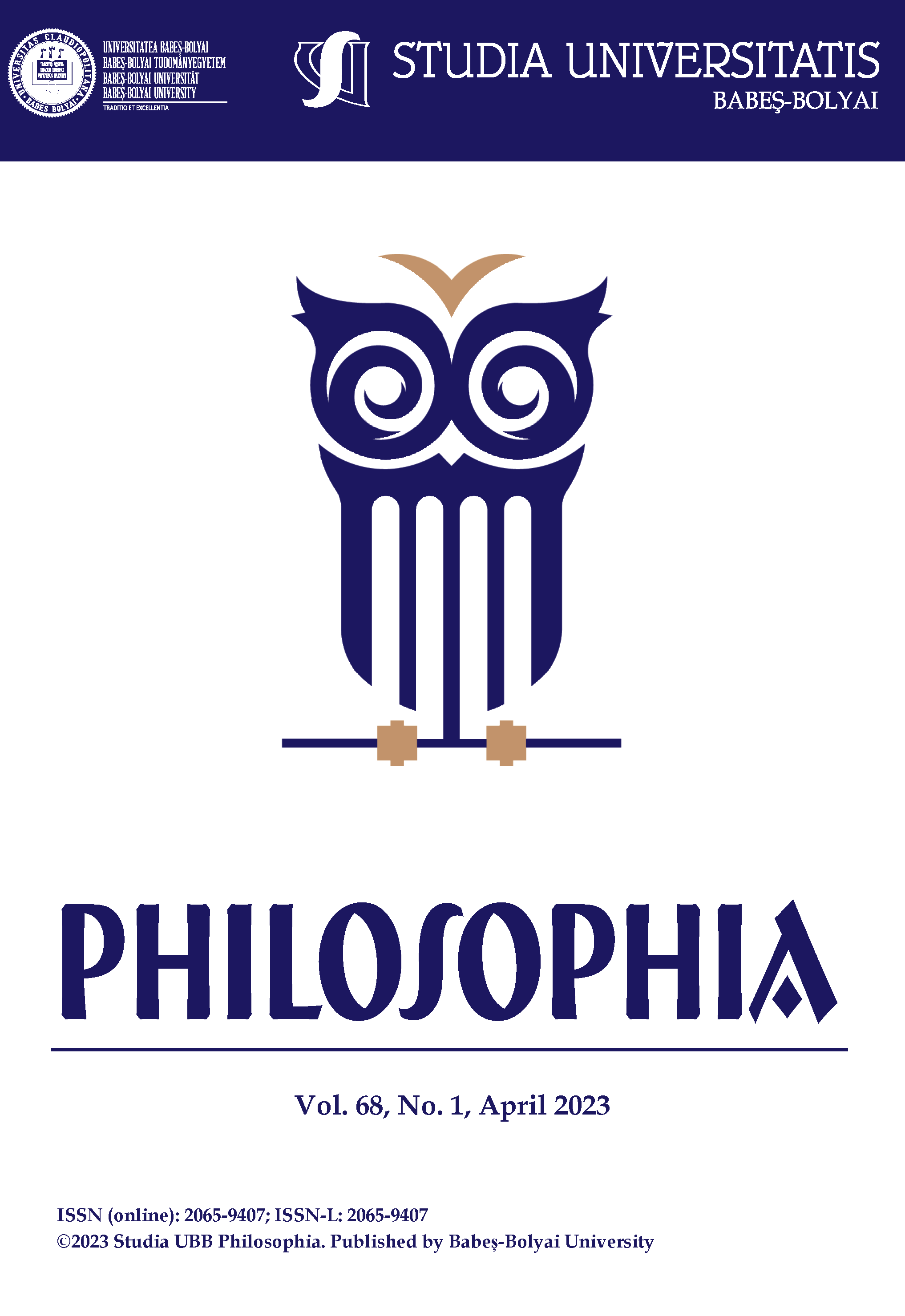ETHICAL ASPECTS OF ARTIFICIAL INTELLIGENCE FUNCTIONING IN THE XXI CENTURY
DOI:
https://doi.org/10.24193/subbphil.2023.1.10Keywords:
intelligence, artificial intelligence, ethics, responsibility, legal responsibility, human existential state, problem of redundancy, stupidity.Abstract
The article is devoted to the ethical aspects of artificial intelligence functioning. The problem of the safe coexistence of man and artificial intelligence is taking on increasing importance. The definition of artificial intelligence and the explanation of the difference between weak, strong artificial intelligence and super-intelligence are given. The first ethical problem of artificial intelligence functioning is the existential question of human redundancy due to the spread of artificial intelligence. The article emphasizes that artificial intelligence, on the one hand, frees a person from certain areas of activity, facilitating their existence, on the other hand, it makes them superfluous in production and in personal life. The second is the problem of responsibility for the actions of artificial intelligence. The article argues for the necessity of human responsibility for the actions of artificial intelligence because artificial intelligence does not have consciousness. The third problem is the intensification of the phenomenon of stupidity in society. Artificial intelligence creates the conditions for the increasing cleverness of some segments of the population and stupidity of others, which can result in even greater mental and property inequality.References
AI Code of Ethics: Bosch Sets Out the Principles for Working with Artificial Intelligence (2020). https://www.bosch.ua/news-and-stories/ai-code-of-ethics/(in Ukrainian).
Baranov, O.A., (2017). The Internet of Things and Artificial Intelligence: The Origins of the Problem of Legal Regulation. IT law: problems and prospects of development in Ukraine: Proceedings of the II International Scientific and Practical Conference (Lviv, November 17, 2017). Lviv: Lviv Polytechnic National University, 2017. P. 18-42(in Ukrainian).
Bartneck, C., Lütge, C., Wagner, A., Welsh, S. (2021). Responsibility and Liability in the Case of AI Systems. In: An Introduction to Ethics in Robotics and AI. SpringerBriefs in Ethics. Springer, Cham. https://doi.org/10.1007/978-3-030-51110-4_5
Benen, Steve (2020). For 14th straightweek, unemployment filing stop 1 million. MSNBC, June 25, 2020. https:// www.msnbc.com/rachel-maddow-show/14th-straight-week-unemployment-filings-top-1-million-n1232091.
Cole, David (2020). "The Chinese Room Argument". The Stanford Encyclopedia of Philosophy, Edward N. Zalta (ed.),
https://plato.stanford.edu/archives/win2020/entries/chinese-room/.
Dignum, V. (2020). Responsibility and artificial intelligence. In: Dubber, M. D., Pasquale, F., & Das, S. (Eds.) The Oxford handbook of ethics of AI. pp. 215-231
Dobrovolska, O.V. (2019). Philosophical Analysis of the Artificial Intelligence. Studies in History and Philosophy of Science and Technology. Vol. 28, № 1. pp.10-19. http://nbuv.gov.ua/UJRN/studhphst_2019_28_1_4(in Ukrainian).
Dobrovolsky, J. (2014). Philosophy of Stupidity. The Story of What is Irrational. Kharkov: Publishing House "Humanitarian Center". 412 s. (in Russian).
Floridi, L. (2021). Robots, Jobs, Taxes, and Responsibilities. In: Floridi, L. (eds) Ethics, Governance, and Policies in Artificial Intelligence. Philosophical Studies Series, vol 144. Springer, Cham. https://doi.org/10.1007/978-3-030-81907-1_21
Franasyuk, Yu. (2018). Moral and Ethical Aspects of the Introduction of Artificial Intelligence in Today’s Globalized World. Socio-cultural and Political Priorities of the Ukrainian Nation in the Context of Globalization. Ternopil: TNEU. pp. 130-132(in Ukrainian).
Harari, Yuval Noah (2018). 21 Lessons for the 21stCentury. Random House. 368 p.
Kaku, Michio (2008). Physics of the Impossible: A Scientific Exploration into the World of Phasers, Force Fields, Teleportation, and Time Travel. Doubleday Publishing, Duke University Libraries. 456 p.
Karchevsky, M.V. (2017). The Main Problems of Legal Regulation of Socialization of Artificial Intelligence. IT Law: Problems and Prospects of Development in Ukraine: Proceedings of the II International Scientific and Practical Conference (Lviv, November 17, 2017). Lviv: Lviv Polytechnic National University. Pp. 93-99. http://aphd.ua/publication-369 (in Ukrainian).
Karpenko, Yu.V. (2019). Ethical Principles of Application of Artificial Intelligence in Public Administration. Bulletin of the National Academy of Public Administration under the President of Ukraine. Series: Public Administration. № 4. pp. 93-97. http://nbuv.gov.ua/UJRN/vnaddy_2019_4_15(in Ukrainian).
Levchuk, A. (2015). Artificial Intelligence: Linguistic Aspects. Scientific Bulletin of the Lesia Ukrainka East European National University. Philological sciences. Linguistics. № 4. pp.203-207. http://nbuv.gov.ua/UJRN/Nvvnuflm_2015_4_41 (in Ukrainian).
Makovkin, A. (2015). Ethical Problems of the Use of Artificial Intelligence. Historical, Philosophical, Political and Legal Sciences, Culturology and Art History. Questions of Theory and Practice. Tambov: Diploma, № 2-2 (52). pp. 130-132(in Russian).
Moor, J. (2006). The Dartmouth College Artificial Intelligence Conference: The Next Fifty Years. AI Magazine – American Association for Artificial Intelligence, vol. 27, no 4, pp. 87-91.
OECD Principles on AI (2019). https://www.oecd.org/going-digital/ai/principles/.
On Approval of the Concept of Development of Artificial Intelligence in Ukraine: Order of the Cabinet of Ministers of Ukraine of December 2, 2020 № 1556-r. https://zakon.rada.gov.ua/laws/show/1556-2020-%D1%80#Text (in Ukrainian).
PetruninYu. (2018). Artificial Intelligence: Is It the Clue to the Future? Russian Journal of Philosophical Sciences. No 4. Р. 96-113. https://doi.org/10.30727/0235-1188-2018-4-96-113
Radutny, O.E. (2021). Self-development of Personality in the Conditions of Nootechnics. Problems of Personal Self-development in Modern Society: Proceedings of the II International Scientific and Practical Conference, March 26-27, 2021 Kharkov. Pp. 102-104 (in Ukrainian).
Rozin, V.M. (2015). Thinking: Essence and Development. The Concept of Thinking. The Role of a Thinking Person. Cycles of Thinking Development. Moskow: LENAND. 368 s. (in Russian).
Searle, J. (1980). Minds, brains, and programs. Behavioral and Brain Sciences, 3(3), 417-424. https://et3r.ektf.hu/wp-content/uploads/2014/06/minds-brains-and-programs.pdf.
Spence, E. H. (2021). Stoic philosophy and the control problem of AI technology: caught in the Web. Rowman & Littlefield. 248 p.
Stephen Hawking warns artificial intelligence could end mankind. By Rory Cellan-Jones (2019). https://www.bbc.com/news/technology-30290540.
Stuart, Russell and Peter, Norvig (2021). Artificial Intelligence: A Modern Approach. Pearson; 4th edition. 2120 р.
Vatican joins IBM, Microsoft to call for facial recognition regulation (2020). https://www.reuters.com/article/us-vatican-artificial-intelligence/pope-to-endorse-principles-on-ai-ethics-with-microsoft-ibm-idUSKCN20M0Z1
Downloads
Published
How to Cite
Issue
Section
License
Copyright (c) 2023 Studia Universitatis Babeș-Bolyai Philosophia

This work is licensed under a Creative Commons Attribution-NonCommercial-NoDerivatives 4.0 International License.





